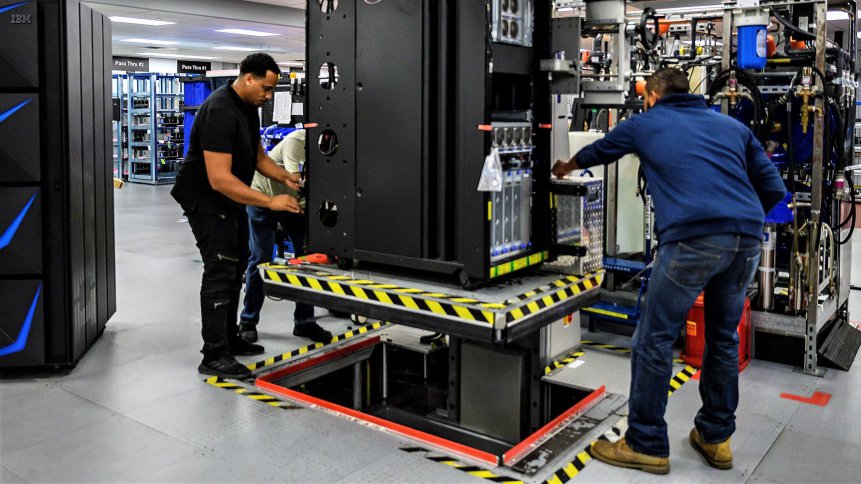Composable businesses: the next big thing in resilience?

How long the term sticks, only time will tell, but the concept of a composable business will certainly persist as long as enterprises look to build resilience into their DNA. Companies that are able to assemble and reassemble their various business operations at will – for example, by switching from a central structure to smaller autonomous teams – are increasingly being dubbed ‘composable businesses’.
Consulting firm Gartner is going big on the concept and predicts that organizations that embrace composability could outpace the competition by 80% in implementing new product features. It’s a bold claim, but the firm is not known for being shy about making predictions. And at the heart of the idea is an energetic and forward-thinking definition of resilience, which is framed around organizations’ ability to ‘spring back into shape’.
Composable 1.0
If this concept is sounding familiar, you might have IBM’s Erich Clementi, Senior Vice President of Global Technology Services, to thank. Anyone who was in the audience at IBM’s 2014 Pulse conference, held in Las Vegas, US, has a sizable head start in understanding what it means for a business to be composable. In his keynote, Clementi – who today has been with IBM for more than four decades – outlined a new collaborative model bringing together IT, business operations, and development. And it wasn’t just Clementi promoting the idea. Deepak Advani, who at the time was General Manager of Cloud and Smarter Infrastructure and had re-joined IBM from laptop developer Lenovo, commented that the path to composable business is dynamic cloud.
Today, there are variations in the model, but in essence, composability rests on a series of pillars. Enterprise success can be broken down, for example, into applications, architecture, culture, partnerships, business, technology, processes, and innovation. And together they provide resilience. The better that companies become at adapting their assets to meet new challenges, the more innovative that they will be in the process. Composable businesses are also, by definition, well-placed to ride out change. And few would disagree that the winds of change have been blowing strong of late. There are other buzzwords too – modularity, orchestration, and autonomy, but before we get swept away it makes sense to anchor this thinking with some practical steps that firms can take to better engineer for the future.
Technical teamwork
Digital transformation is a rewarding destination to arrive at, but the journey to get there can be tough going. Pulling together disparate business processes and information streams is a task best done as a team, especially when you can bring decades of staff experience to the exercise. And this is where new start-ups such as Kompozable fit in. “We have seen a real need for modernisation of the data estate as the first step towards embracing intelligent technology for businesses,” said co-founder David Procter. Based in Manchester, the firm is situated in one of the strongest technology ecosystems in the UK – according to data gathered by Beauhurst, which tracks the financial performance of firms, as well as investment numbers, grant details, headcount, and many other business characteristics.
Kompozable’s model is to partner with leaders such as Microsoft, to leverage large-scale cloud expertise, and Boomi, which offers a platform for connecting data across various applications both in the cloud and on-premises. And the start-up’s founders bring decades of experience in helping firms to understand their business challenges and identify where digital solutions have the potential to transform the way that organizations operate – services that are essential elements of the composable toolkit. Focus areas for the firm are financial management and streamlining supply chains and operations. Here, one of the pinch points for companies is having the time to optimise and maintain their data. Speed of business operations means that there’s little time for reflection, but until data streams can be joined up, efficiencies will remain, which is why it’s encouraging to see that help is out there.
Beneficiaries of Kompozable’s services include Diploma – an international group of companies that operates in the controls sector, life sciences, and provides seals for heavy mobile machinery and specialized industrial equipment. In this case study, the transformation involved building a framework for aligning Diploma’s enterprise resource planning (ERP) and technology roadmaps with the company’s business objectives. With this foundation in place, firms can then explore the business benefits that different IT integrations can bring and build those activities into new projects.
Companies can take comfort from the fact that being composable has a longer foundation that many would have given the concept credit for. And, at its core, comes down to maintaining the dialog between systems providers and their customers to make sure that the latest products and services address the needs of businesses. And overarching the list of deliverables is resilience.









